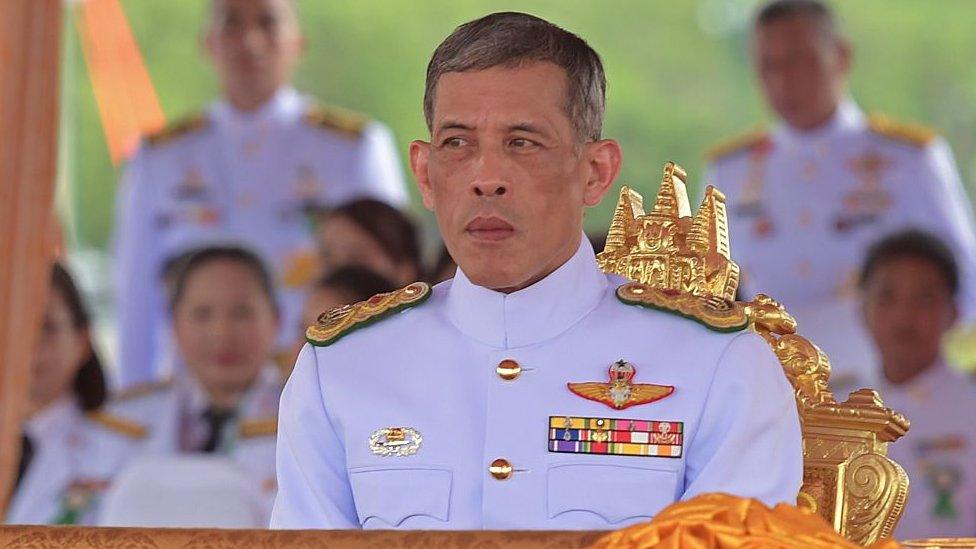Prayuth Chan-ocha: Thailand's face of hybrid democracy
- Published
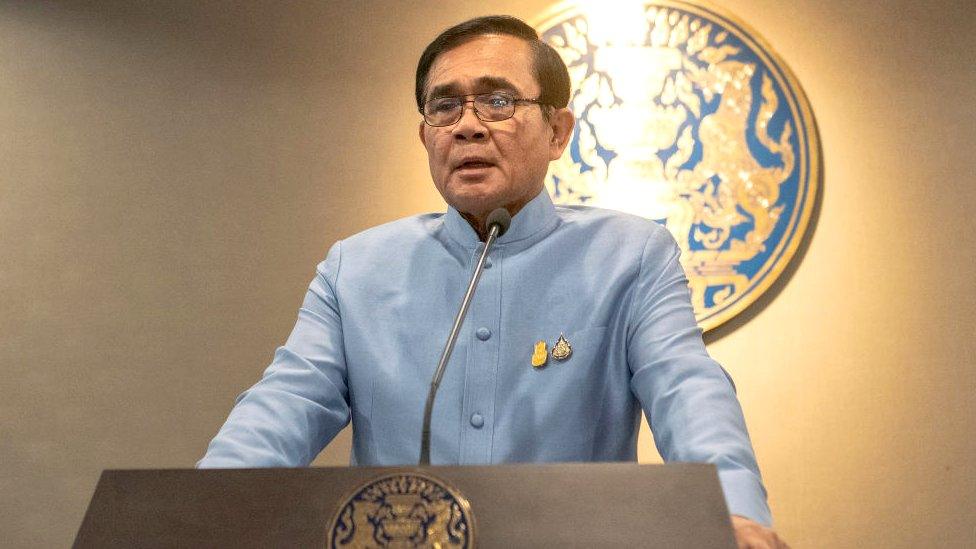
Gen Prayuth is known to be a staunch supporter of the royal family
Thailand Prime Minister Prayuth Chan-ocha, who was sworn in last year in June, is facing severe challenges domestically.
In July, six of his cabinet members including the finance and deputy prime ministers resigned, which was followed by waves of student protests since 10 August demanding his resignation.
Thousands of young protesters who seek a new constitution, an end to the repression of political activists, and reform of the monarchy, came onto the streets raising three-finger salutes, an unofficial symbol of protest which was banned during the May 2014 military coup.
Just a month after that bloodless coup in 2014, Gen Prayuth wrested political power with the backing of Thailand's monarchy.
Formative years
Prayuth was born on 21 March 1954 in a military family in Thailand's north eastern province Nakhon Ratchasima. After finishing his middle-level education from the Wat Nuannoradit School, he was sent to the Armed Forces Academies Preparatory School and later joined the prestigious Chulachomklao Royal Military Academy.
A staunch supporter of the royal family, he had the opportunity to work in the 21st Infantry Regiment, also known as Queen's Guard under the Second Infantry Division during his initial military career and was later promoted to commander of the regiment.
In October 2003, he became the commander of the Second Infantry Division of the Royal Guard and in October 2006, he was promoted to commander of the First Army Area for supporting army chief Gen Anuphong Phaochinda during a coup that year. The coup had been staged to depose the government of then-prime minister Thaksin Shinawatra.
Rise of a military leader
Prayuth's allegiance to Anuphong grew into a partnership after they formed a military leaders' group known as the Eastern Tigers and Prayuth was appointed deputy chief of the Thai Army in October 2009.
He was accused of favouring a military crackdown on the supporters of former Prime Minister Thaksin Shinawatra, the Red Shirt group who were protesting against the Democrat Party-led government for over a month in 2010.
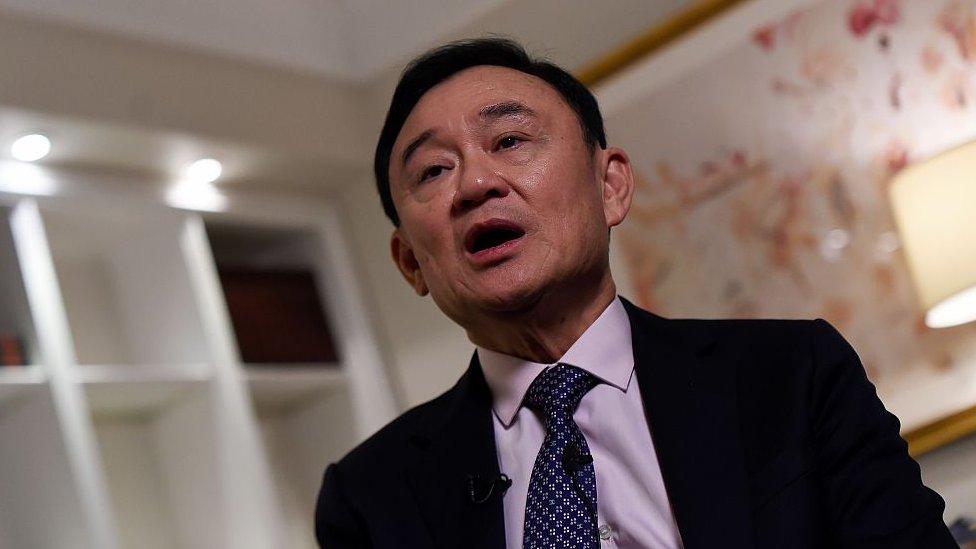
Gen Prayuth is accused of favouring a crackdown on those who supported Thaksin Shinawatra
After he succeeded Anuphong as the commander-in-chief of the Thai Army on 25 September 2010, he declared himself "fiercer than Brother Pok [Anuphong]".
In June 2011, he departed from his position that the army would not interfere in politics when he appealed to voters to support "good people" in the elections, which was widely construed as a hint to vote against Yingluck Shinawatra, Thaksin's sister.
Prayuth then took advantage of a six-month-long political conflict between the Yingluck government and opposition party, and declared a coup on 22 May 2014. Subsequently, a military administration officially known as the National Council for Peace and Order (NCPO) suspended the constitution and elected him as prime minister of the country on 21 August.
Image makeover
After taking the reins, Prayuth enacted an interim constitution that gave the military government unaccountable power. Section 44 of the constitution ensured its absolute authority to issue orders against any activity the government saw as a threat to order, national security or the monarchy.
Along with imposing restrictions on civil liberties, media and dissent, Prayuth also took steps to transform his image into that of a benevolent leader.
He wrote a song "Return Happiness to Thailand" with lines such as "We will do what we promised… we are asking for a little more time". The song was widely aired on state radio and television stations.
The Nation Books, a subsidiary of the country's Nation Multimedia Group, published his biography titled "His name is Tu", referring to his nickname Uncle Tu. The book recounts his journey as a leader and tries to depict a softer side to his authoritarian persona.
He also hosted a weekly Friday TV programme titled "The King's Knowledge for Sustainable Development", where he publicised the developmental efforts of his military government under the guidance of Thailand's late King Bhumibol Adulyadej.
Prayuth drew controversy due to his impulsive and angry behaviour towards the media after becoming head of the country, and he subsequently tried to shut himself off from media to such an extent that in January 2018, he left a life-sized cardboard cut-out of himself for a media Q&A session.
But as the 24 March 2019 general election approached, Prayuth's team became active on social media, sharing pictures of choreographed events such as his visit to Thailand's Lumphini Park or him singing on a stage with his supporters.
In the election, the Palang Pracharath Party nominated Prayuth as its prime ministerial candidate, and following this, the Thai parliament - which is dominated by members of the military administration - elected him as prime minister on 5 June 2019.
BBC Monitoring reports and analyses news from TV, radio, web and print media around the world. You can follow BBC Monitoring on Twitter , externaland Facebook., external
- Published16 August 2020
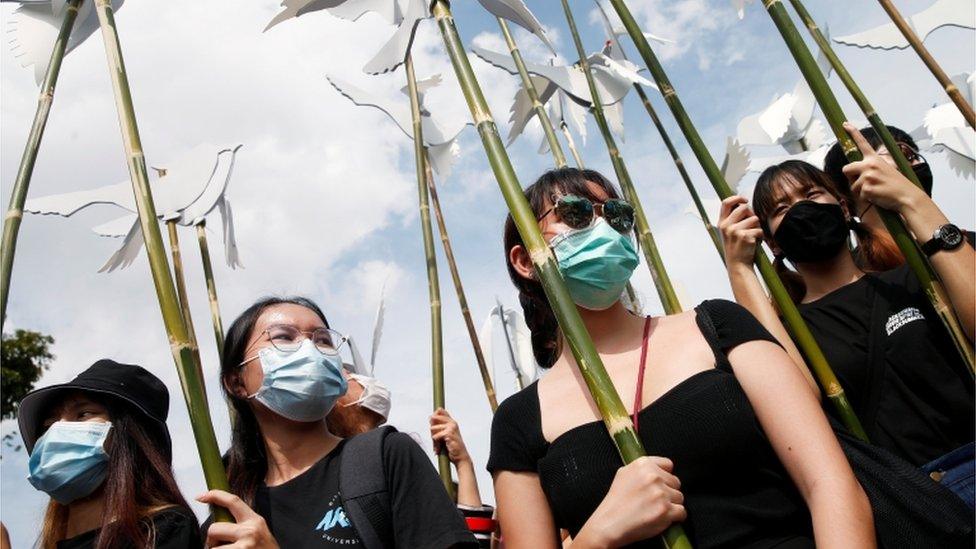
- Published3 September 2020
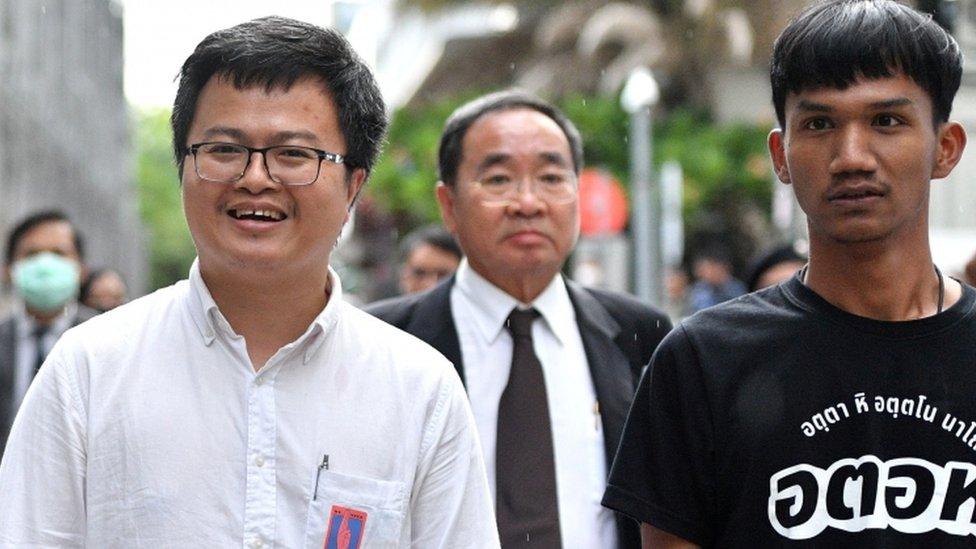
- Published17 August 2020
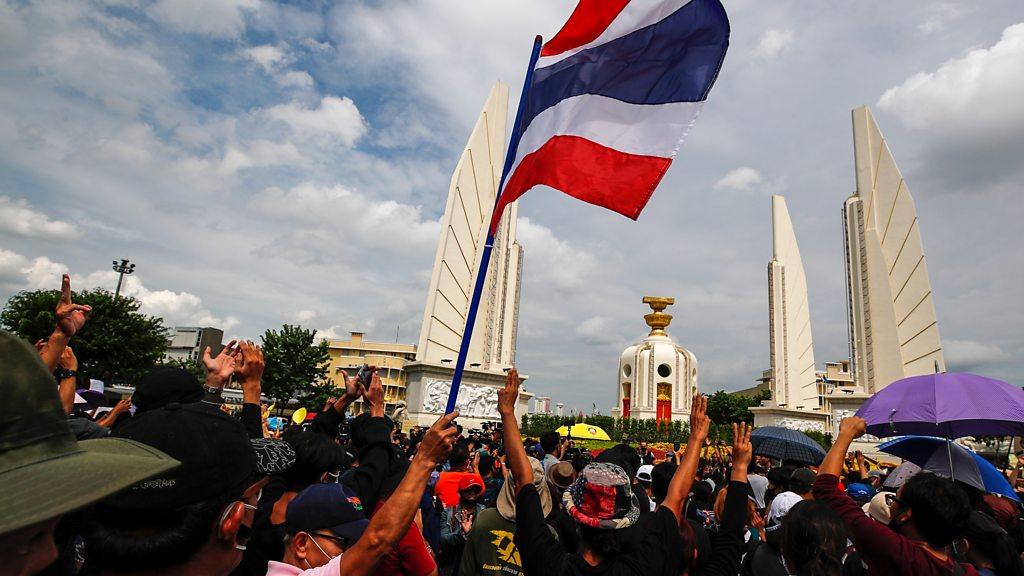
- Published3 May 2019
